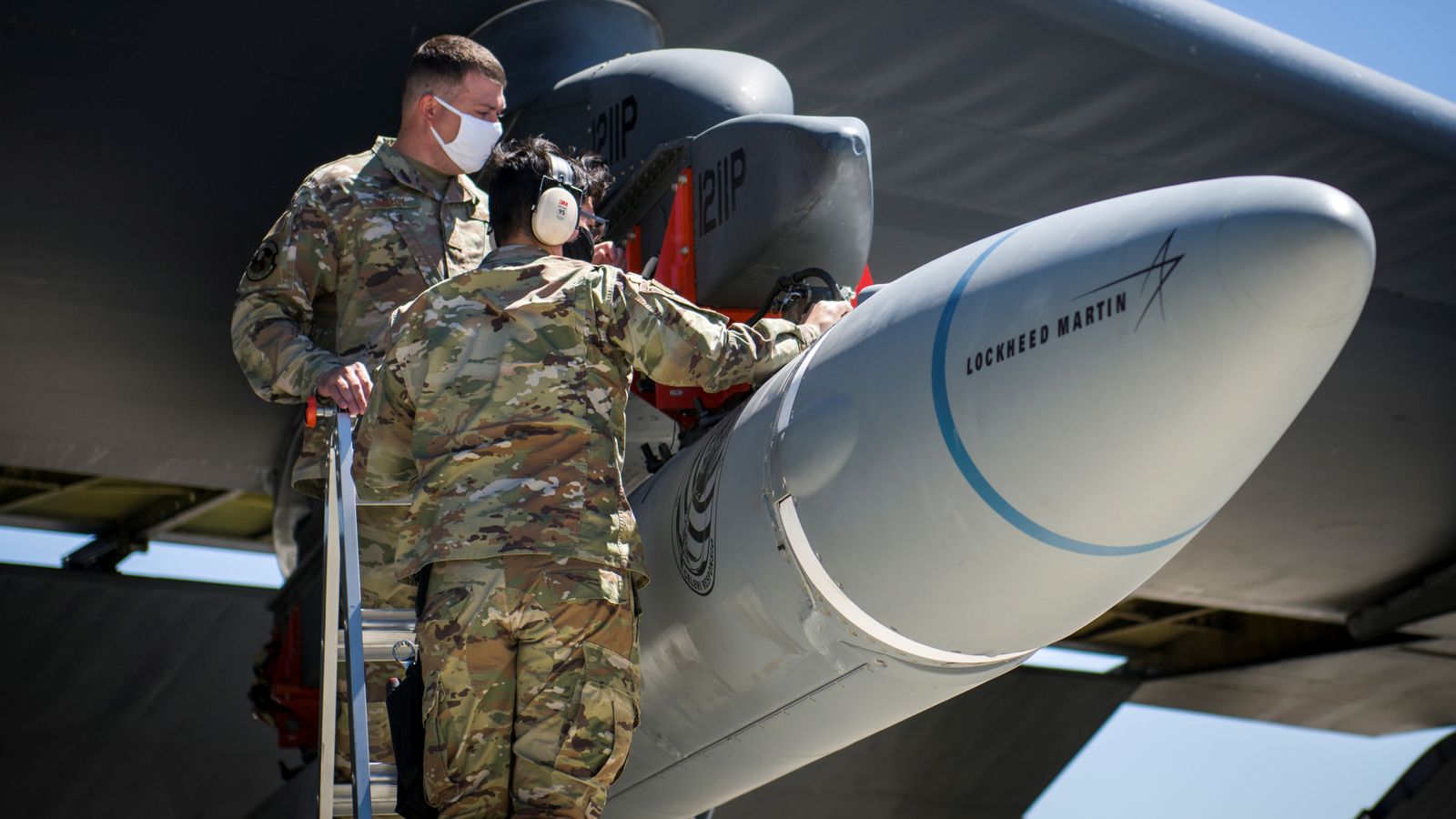The US has successfully tested a hypersonic weapon, according to the US Air Force.
The test was conducted on Saturday in the Pacific Ocean off the coast of southern California, but it was confirmed in the early hours of Tuesday.
The US Air Force said that the air-launched rapid response weapon (ARRW) was released by a B-52 bomber.
“Following separation from the aircraft, the ARRW’s booster ignited and burned for expected duration, achieving hypersonic speeds five times greater than the speed of sound,” they added in a statement.
It comes just weeks after the UK, US and Australia agreed to work together on hypersonic and anti-hypersonic weaponry.
The Australia-UK-US – or AUKUS – deal announced last September initially concentrated on nuclear submarine development in the Pacific at a time of growing concern over China.
But the focus has expanded since Russia’s invasion of Ukraine, to include new areas of co-operation such as hypersonic weapons.
In March, Russia said that it had deployed its “Kinzhal” hypersonic missile in Ukraine – a weapon that can reportedly fly at 10 times the speed of sound and cannot be reliably tracked or intercepted at that speed by any existing defence system.
The weapon destroyed an underground warehouse storing missiles and aircraft ammunition in the west of Ukraine, a Russian defence ministry official had said.
‘Apocalyptic war between the superpowers’
Defence analyst Professor Michael Clarke told Sky News at the time that the weapon was developed “for the prospect of apocalyptic war between the superpowers”.
He added: “You can’t defend against it. You can’t see it. You can’t prepare for it.”
The US says China has also tested hypersonic weapons, although China’s foreign ministry has denied this.
North Korea claimed to have tested a hypersonic weapon in January.
Earlier this month, a committee of MPs warned that the UK’s armed forces may lack the “modern battle-winning capabilities” they need for the demands of future warfare.
The commons public accounts committee said the Russian invasion of Ukraine was a reminder of the “risks and responsibilities” which come with the UK’s NATO membership.
Despite a £16.5bn budget increase in the four years to 2024-25, it expressed frustration at the “complacency” within the Ministry of Defence over the affordability of its equipment plan.
